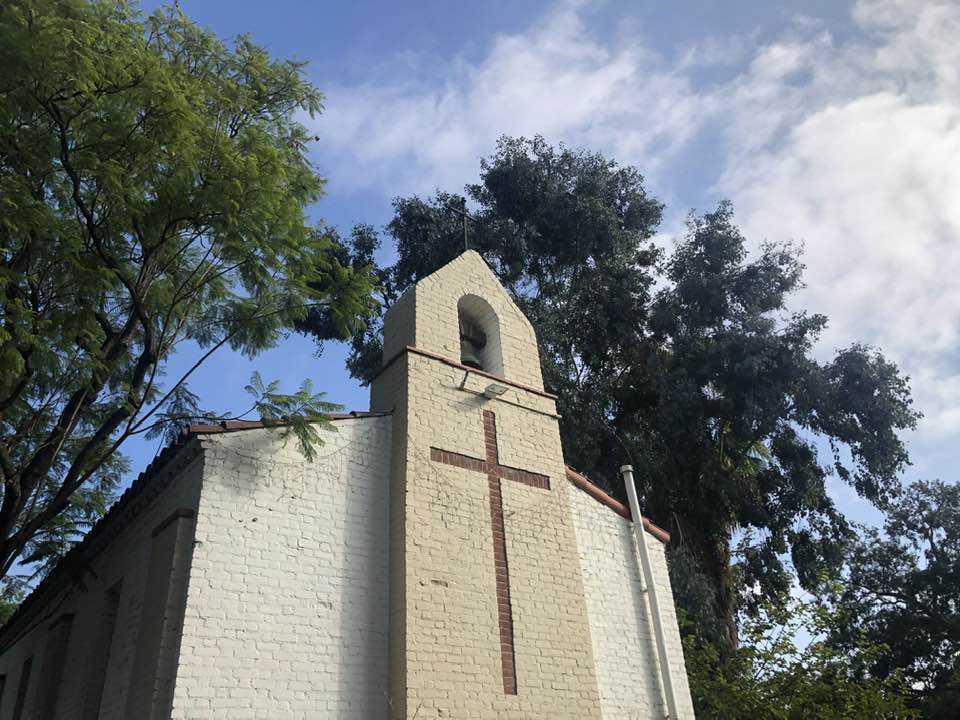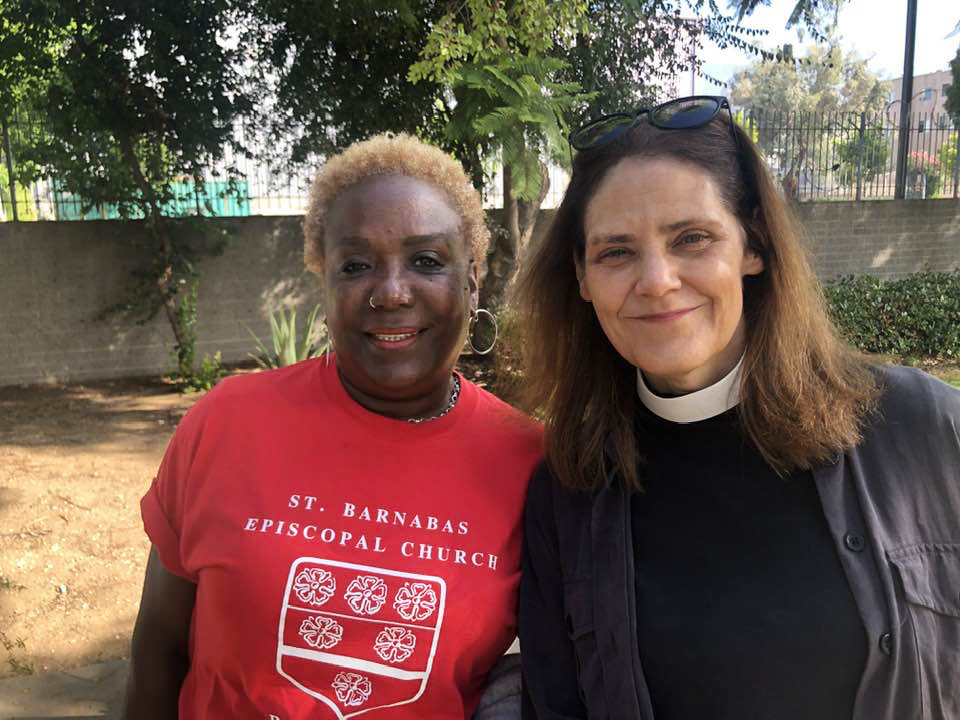
St. Barnabas’ Church, Pasadena. Photo: John Taylor
[The Episcopal News] Bishop Diocesan John Harvey Taylor and a phalanx of parishioners, civic leaders and friends will be present as St. Barnabas’ Church, Pasadena, celebrates its 100th anniversary as a historically Black congregation of the Diocese of Los Angeles on Sunday, June 11, 10 a.m. – 12:30 p.m.
The celebration, themed “St. Barnabas 100 – Still We Rise!” will include a program, featuring commemorations from dignitaries and testimonials from church members. Event chair Marco White says that the homecoming event will be held with “love, St. Barnabas style,” with a luncheon barbecue, peach cobbler, music and the “beautifulest” centennial birthday cake.
Expected to attend are U.S. House of Representatives member Judy Chu, Pasadena Councilmember Justin Jones and California Assembly Member Chris Holden.
“St. Barnabas, Pasadena was founded in the early 1900s because of the Jim Crow era,” said the Rev. V.R. Marianne Zahn, priest-in-charge. “Black Americans fled the South and its racial segregation as part of the Great Migration, settling in the Los Angeles area with hopes of finding favorable economic opportunities and social acceptance. Not all religious institutions, however, were welcoming.

The Rev. Marianne Zahn, right, poses with a member sporting a St. Barnabas’ tee shirt during an episcopal visit in October 2022. Photo: John Taylor
“All Saints Episcopal Church in Pasadena would not allow Black parishioners to attend services at that time,” she said. All Saints, now a bastion of inclusion, has worked with St. Barnabas in recent years to mend their relationship’s racist beginnings.
Committed to their faith, a small group of Black Episcopalians held a meeting at the Pasadena home of Georgia Weatherton on South Fair Oaks Avenue on June 16, 1909, to organize a mission they called the St. Barnabas Guild. The members supported the fledgling ministry through food sales. By 1911, their weekly services were held in the Grand Army Hall on Colorado Street.
In 1923, eight Black women, including Ellensteen Bevans, Rosebud Mims and Georgia Weatherton, officially founded St. Barnabas’ Church.
The new congregation continued to grow, and the Diocese of Los Angeles admitted it as a mission in 1932. “Families from All Saints donated land and provided funding for Saint Barnabas to build its ‘separate’ sanctuary on North Fair Oaks Avenue in 1933,” Zahn said.
Over the decades, Saint Barnabas and its racially diverse congregation has become a pillar of its Pasadena neighborhood. Among its notable community contributions are:
- Sponsoring the Northwest Pasadena Little League
- Providing meals for Union Station residents on the third Friday of every month
- Granting scholarships each year to Pasadena Unified School District graduates
- Maintaining a community food pantry
- Hosting three Alcoholics Anonymous groups in its parish hall on weeknights
- Hosting a Spanish-speaking Catholic congregation on Sunday afternoons
- Hosting a Spanish-speaking Pentecostal congregation on Friday and Sunday evenings.
The centennial theme, “Saint Barnabas 100 – Still We Rise,” is inspired by the late author, poet and civil rights activist Maya Angelou. Church members look forward to a new era of growth and inclusion, says Zahn. “History has taught us a lot,” she added. “At Saint Barnabas, we will always lead with love.”
She invites the diocesan community to join the centennial service and luncheon on June 11. “All are welcome here and we truly hope to see you at this special celebration.” She also invites all to the parish’s regular weekly in-person service and fellowship on Sundays at 9 a.m.
Saint Barnabas Church is located at 1062 North Fair Oaks Avenue in Pasadena, California. Services are live-streamed on Facebook here (no log-in is necessary).
— Adapted from a history provided by members of St. Barnabas’ Church
